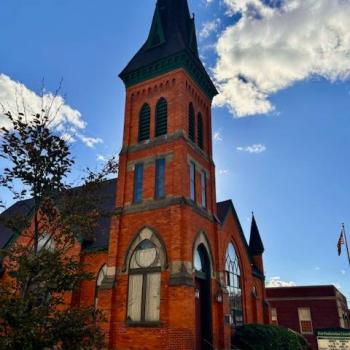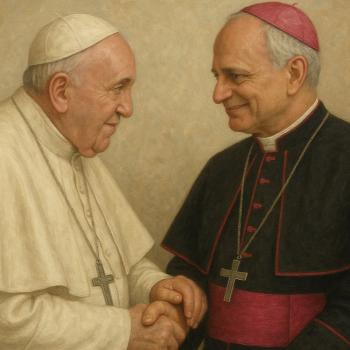In general, however, Evangelicals rarely talk about the ‘former' mainline; they talk much more about how to reach those who are unchurched and who have not heard the gospel of Jesus Christ. In large part, because they are so structurally decentralized, they have become fragmented and entrepreneurial. Because of this ethic and ethos, young leaders with entrepreneurial personalities are drawn to this kind of Christianity, which ensures, in part, that their dynamism will continue. As to whether Evangelicals are now the mainline is simply a question they don't ask. They are far less interested in dominating economic or political institutions then in evangelizing young people. Indeed, Evangelical youth are much more likely to stay in the church than those in the liberal or ‘former' mainline churches. The growth of Evangelical churches, at least from their present state, seems to be assured.
So, will the real Protestant Mainline church please stand up? From this discussion it should be clear that American Protestantism is an ever-changing, multi-faceted, and multi-colored quilt. The once mighty Protestant Mainline is now a shadow of itself; no one can name one leader that stands out in the American media. The Niebuhrs and Tillichs are no longer there. In this sense, American Evangelicals are the new mainline. Nonetheless, generalizing about them is always a bit dangerous because structurally, they don't centralize authority. Furthermore, they incentivize individual entrepreneurs to start new ministries. This structural uniqueness both assures both less consistency and less cultural power broadly speaking, but on the other hand, as I have said, it also seems to portend greater numerical growth into the 21st century.
James K. Wellman, Jr. is Associate Professor and Chair of Comparative Religion at the University of Washington. He teaches American religious culture, history, and politics. He is author of numerous books, including the award-winning The Gold Coast Church and the Ghetto: Christ and Culture in Mainline Protestantism(University of Illinois Press, 1999) and most recently Evangelical vs. Liberal: The Clash of Christian Cultures in the Pacific Northwest (Oxford University Press, 2008), which received Honorable Mention for the 2009 SSSR Distinguished Book Award. His present project is a book exploring the spiritual and emotional ethos of American megachurches, Getting High on God: Charisma, Ecstasy, and Power in American Megachurches.




